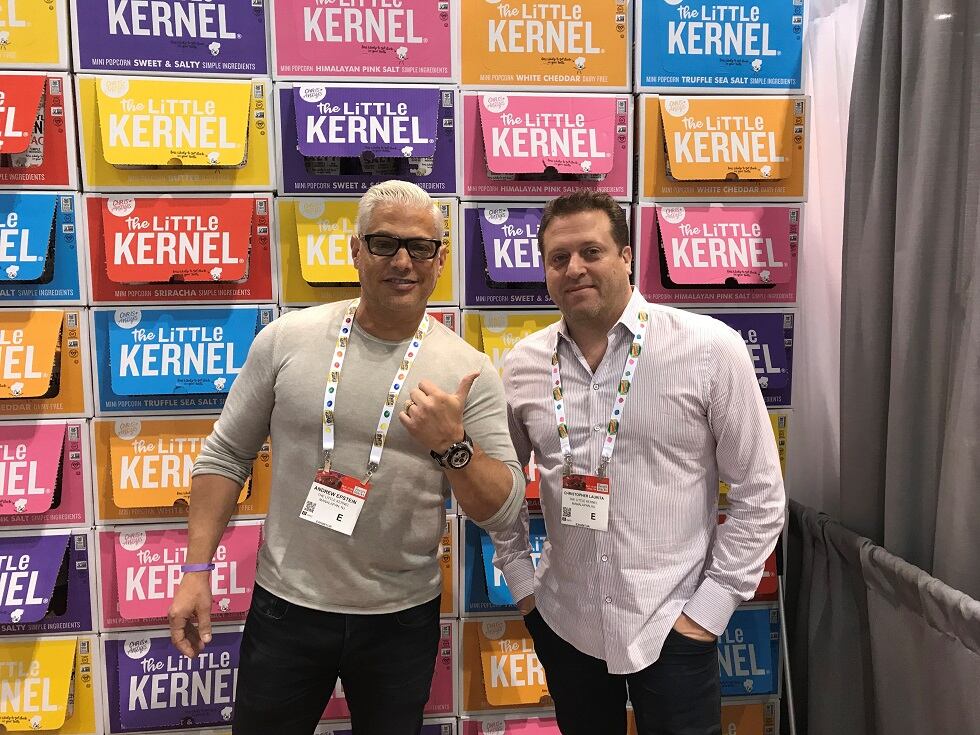Chris Laurita, co-founder of The Little Kernel, said he and business partner Andy Epstein are currently exploring external investment to achieve their growth target.
“We’ve had a few meetings with strategic investors already and have some others lined up. We just want to make sure we find the people that we like and build a meaningful business together,” said Laurita.
“Our funds have so far been private and family funds, and we haven’t got into any venture capitals yet. We’re hoping to secure our second round of funding within the next six months,” he added.

“We’re definitely going to experience a triple-digit volume growth in 2019, with some accounts such as Whole Foods coming on board later this year.”
However, Laurita noted the overall popcorn category might reach a glass ceiling after years of exponential sales increase.
He said: “Some brands are having $20m or $30m annual sales, which is their ceiling… Of course, we want to be on the higher end of that, but we also want to make sure we have a manageable business.
“We don’t think $200m [for us] is out of the question. We think that’s achievable,” he added.
Advantages of small kernels
Laurita noted The Little Kernel is one of the few popcorn producers in the US that use small corns, and its success has motivated more small kernel farmers and similar brands to enter the market.
“These kernels grow on a smaller cob, which is about three to four inches long. When the popcorn pops, the whole kernel virtually disintegrates which makes it lot easier to chew and digest,” he said.
“A lot of people walked away from popcorn not only because it gets stuck in their teeth, but their kids sometimes choke on it as well,” Laurita explained.
“There is also health concern about the oil and what temperature you need to heat the oil up [to make popcorn]. With smaller kernels, we don’t have to heat it up with such high temperature [as we did with regular popcorn].”
“We use natural ingredients, such as black truffles from Italy, and each bag of our popcorn only contains 150mg of salt and 3g of sugar,” added Laurita.
The Little Kernel currently offers sweet and salty, butter, truffle sea salt, white cheddar and Himalayan pink salt varieties across the US.
It recently discontinued its naked plain popcorn, but unveiled a new Sriracha flavor at the Sweets and Snacks Expo in Chicago last month.
‘Never say never’
The Little Kernel does not make it to the top 20 popcorn companies in the US with some of the large ones, such as PepsiCo-owned SmartFood and Hershey’s SkinnyPop, dominating the majority of the market, according to Euromonitor.
However, the brand has been approached by large companies for acquisitions, said Laurita.
“We’ll never say never. We’re very hands-on with our packaging, marketing and product development. At the end of the day, our goal is to build a great brand.
“Some of the bigger companies and private investors may want to acquire us, that’s a conversation we are open to having,” he added.
New packaging and snack formats
Even though The Little Kernel is still at its early stage, Laurita believes it has advantages to compete with more established popcorn brands.
“The US popcorn category was very competitive when we launched our business, but it wasn’t so competitive in the better-for-you space. So that’s where we really wanted to build our base,” he said.
To show its better-for-you attributes, The Little Kernel will roll out its latest packaging this summer, highlighting certified non-GMO Project, gluten-free, vegan and whole grain.
“We weren’t happy with our original package because it wasn’t speaking to the health-driven consumer,” said Laurita.
The new package also features a new company logo that Laurita said would give the partners an opportunity to expand into other categories without having to build a new brand.
“We are probably looking to create new line extensions in 18 to 24 months,” said Laurita.
